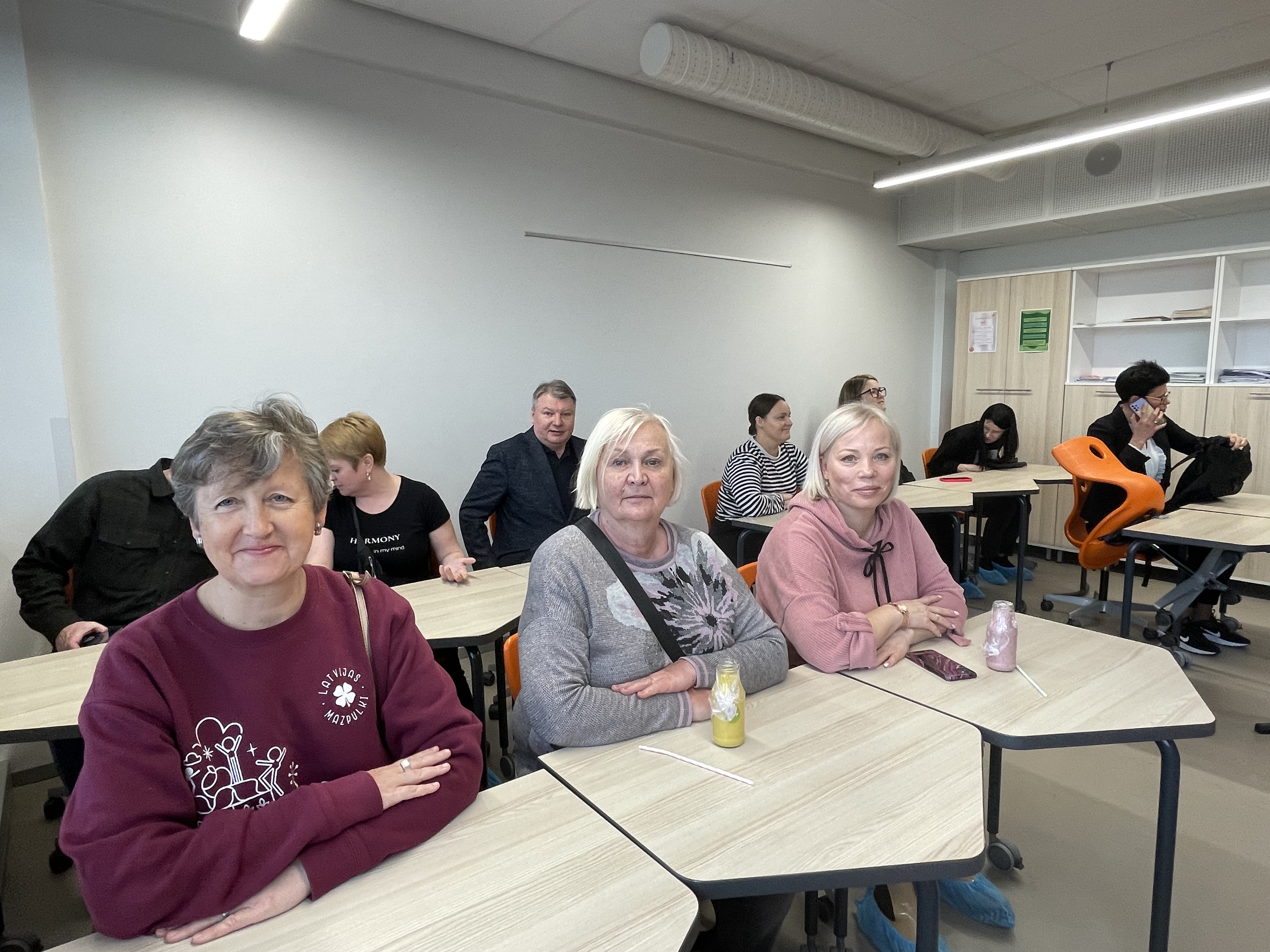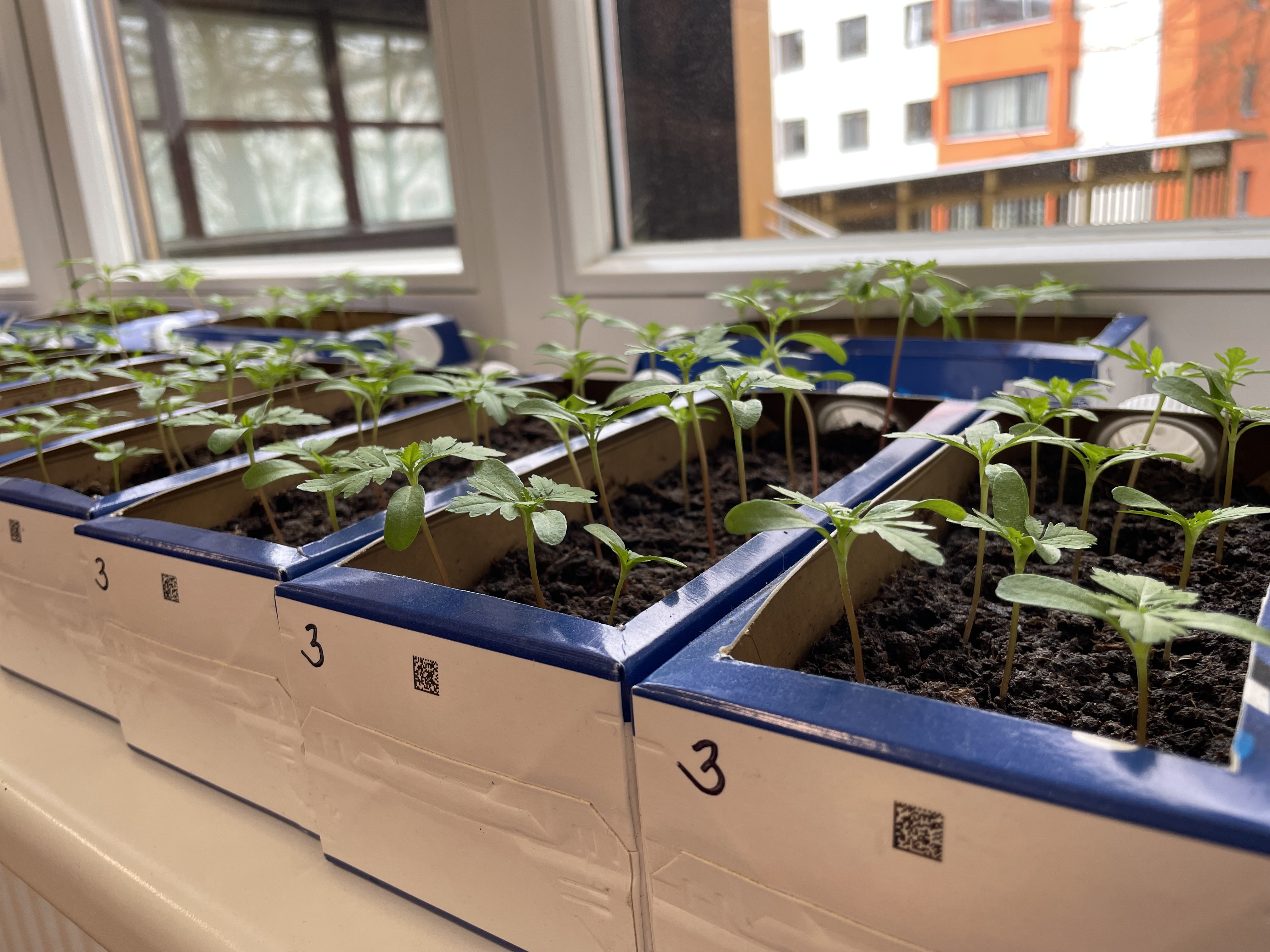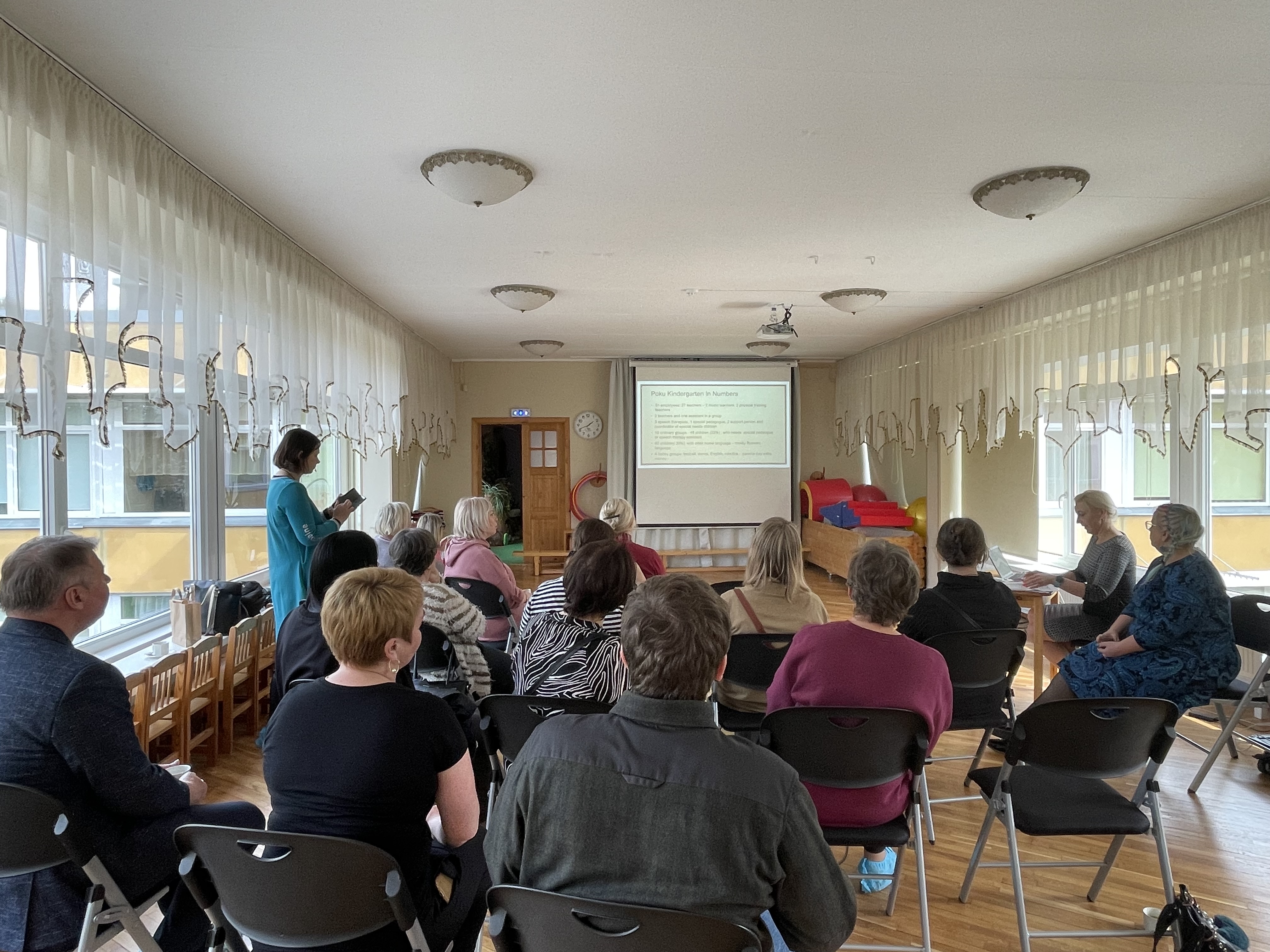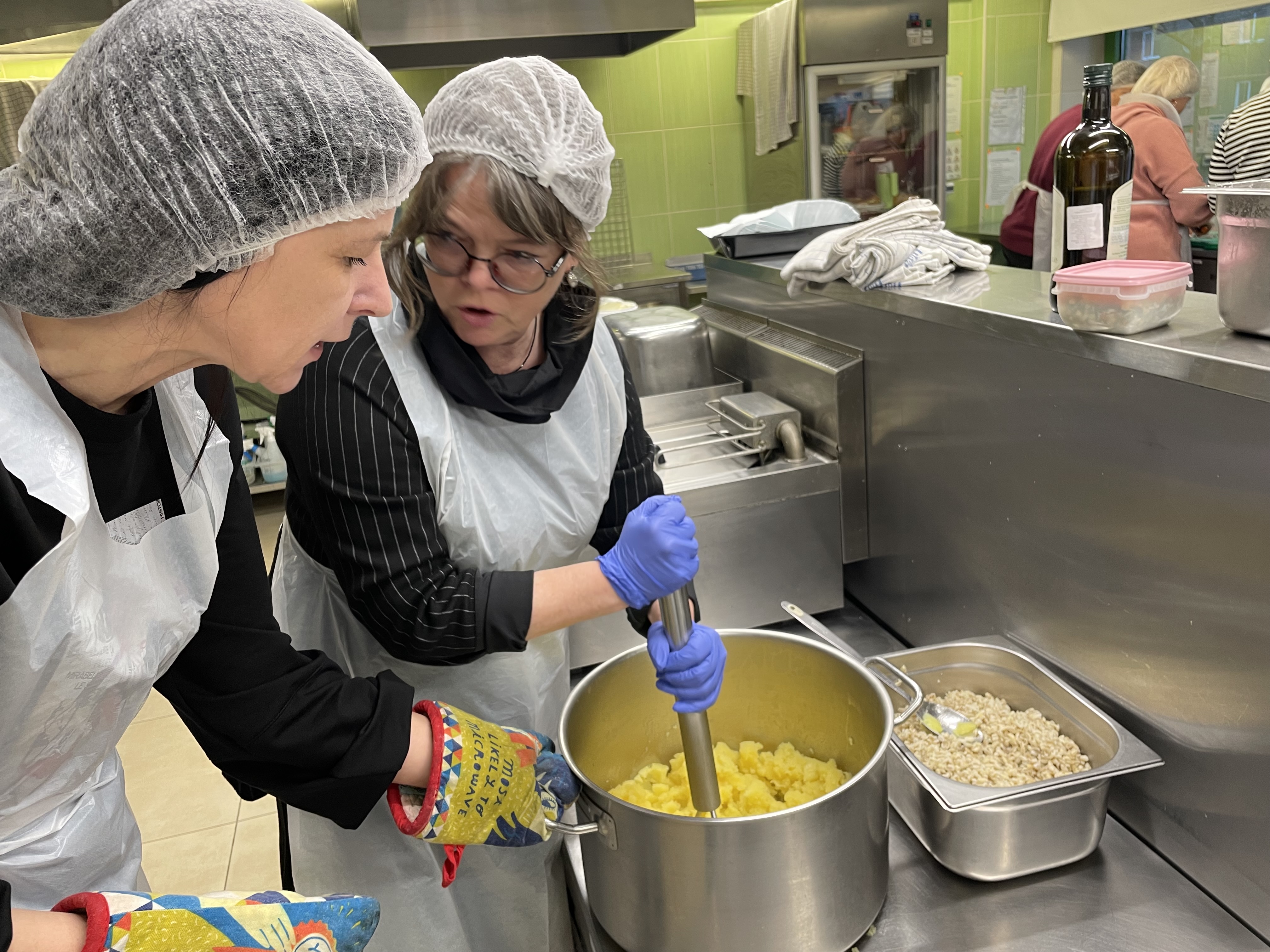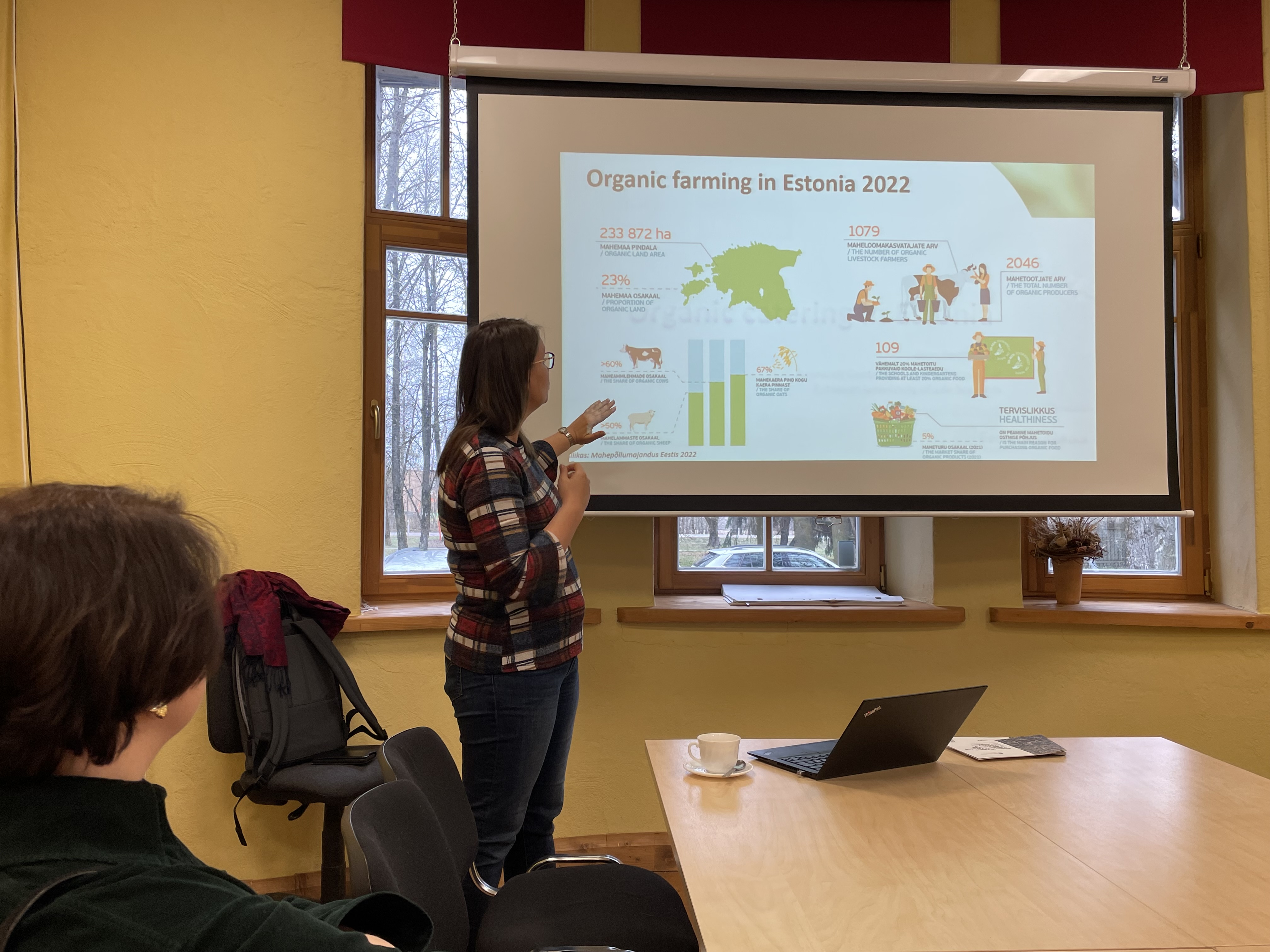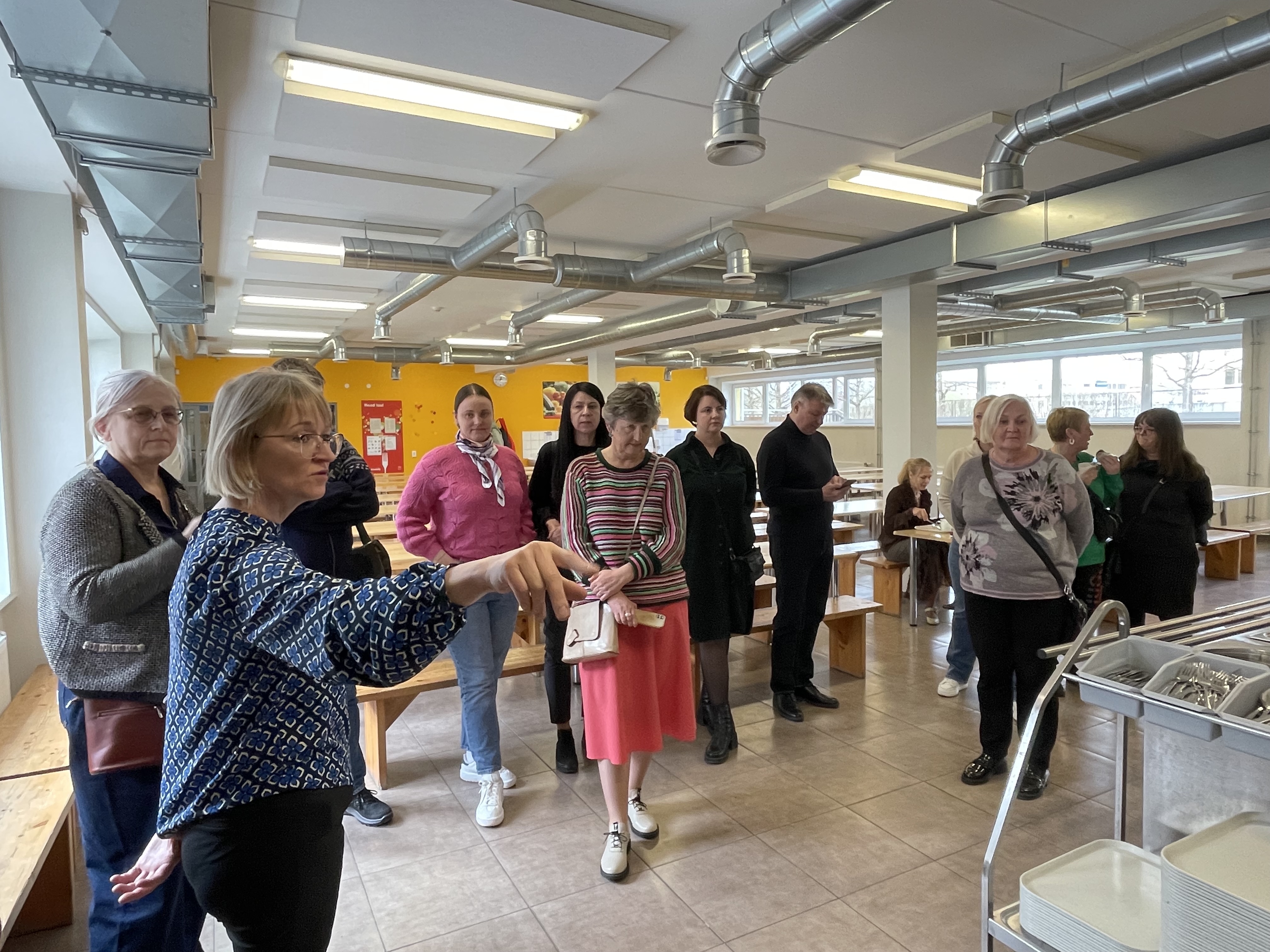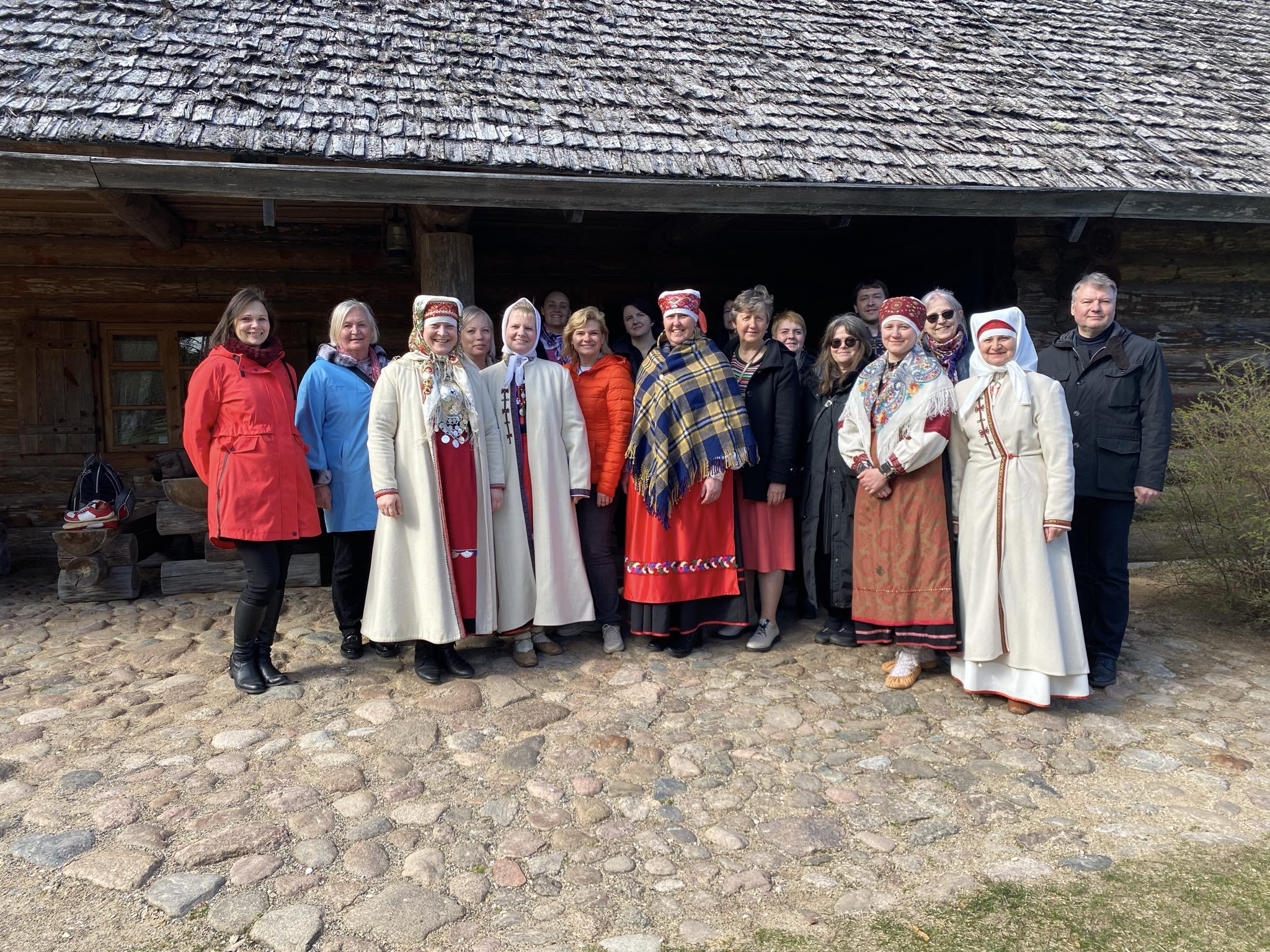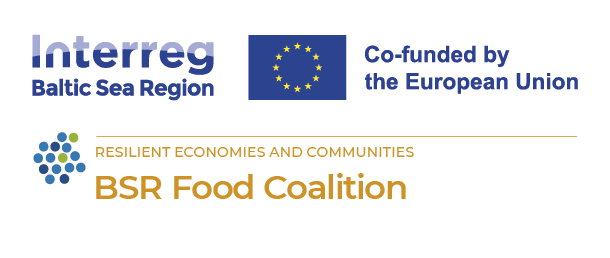
S002 “BSR Food Coalition”
On 15-17 April 2024 #sbsrfoodcoalition project partners from Kurzeme, Latgale, Klaipeda, Tartu un Voru regions gathered in Estonia for a project meeting and experience exchange. From Kurzeme side, representatives from the Saldus County municipality and Z. Mauriņa Grobiņa Secondary School catering company also took part in the visit.
On Day 1, 15 April, we visited the Tartu Annelinna Gymnasium, Tartu Poku kindergarten, Tartu market, which has developed cooperation with Tartu Karlova kindergarten and has installed plant boxes in the market square, which are being kept by the kindergarten kids. In the evening, we visited Tartu Technical College, where, lead by the college chef, we had to prepare our own meal – traditional Estonian dishes! According to municipality decision at least 20-50% of all meals in Tartu city schools (not county) should consist of biological production and children can choose themselves, what to put on the plate – Tartu caterers admit, that this significantly reduces food waste. Nevertheless, children are children – what we’ve spotted during the lunch time was that ~70% of children, in spite of the wide variety of salad choices, still choose mainly just pasta to put on their plates:) Estonian colleagues admit that it is the reason why healthy food education and knowledge of locally grown produce are so important to be taught about from the early age, as well as the involvement of kids in preparing of various meals, what’s been practised at Estonian kindergartens already.
On Day 2, 16 April, we visited the Organic Agriculture Research Centre of the Life Sciences Faculty at the Estonian University, Elva municipality and Gymnasium, as well as Melliste school. There are 2046 organic farmers in Estonia and 23% of the land is organic agricultural land. In 2024 23% of all Estonian children eat organically grown products in their meals. The aim is to increase this number by 50% in 2030. To achieve this, the state, in addition to usual state support for school meals (1 EUR a day per kid), provides support to schools for the procurement of organic production at 2,20 EUR a month per school-kid (Grade 1 – 12) and 4,90 EUR per kid at kindergartens. Some municipalities, such as Elva, have chosen a parent co-payment at 0,90 EUR a day, to provide children with more healthy meals, as well as to avoid food waste. This municipality carries out the procurement of local products from local farmers up to the max permissible public procurement threshold of 40 000 EUR, by reaching which the “large” procurement is organised (which local farmers do not provide their offers for), since overall the municipality spends about 400 000,00 EUR a year for school and kindergarten meals and participation in the “large” procurement is too complicated for local farmers. Elva municipality has also created a so called food sharing container, where food what’s left from school and kindergarten meals is delivered and can be easily taken and used by anyone in need. In the end of the day we also visited one potatoes’ growing and processing cooperative, which 6 local farmers that are growing potatoes have been joined in and created a production facility for potato washing, peeling, processing and storage un with joint efforts provide their production to schools, kindergartens and shops.
On Day 3, 17 April, we went to Voru County to visit the Urvaste Parish community, which produces organic kama – a product so far barely known to us in Latvia and Lithuania, which is made of a mixture of different finely ground and roasted grains and can be used for breakfast by adding, for example to, kefir, used in smoothies and deserts. We also visited two schools – Voru Kreutzwald school and Mikitamäe school and kindergarten, which all use 20-50% organic food in their meals. Mikitamäe school is a so called “small” school with 51 kid and, in Estonia, the PPL regulation is not applied to small school meals. These schools have their own kitchen with kitchen staff paid by the municipality and school itself is free to purchase products for their meals from local farmers. This school also grows it own organic food and children like to work in school garden. At all schools that we visited food to children is provided in a “buffet” type way, by letting them to choose what and how many to put on the plate, thus reducing food waste. We also had a chance to visit one organic farm – Leese, which grows organic potatoes and sells them to local schools. In addition, it cooperates with Antsla school, by offering part of its fields for the school needs, which thus teaches children how to plant, look after and collect vegetables. Voru County is the organic food “leader” – all of its parishes has made a unique joint agreement on facilitating organic food and set a target to significantly increase organically grown products in school meals by 2030. Today, the Tartu County follows the Voru example and works on reaching a similar agreement between Tartu parishes.
The visiting partners came to the conclusion that Estonian example shows how very important it is to reach agreement and pursue the same goal on political level, which, in spite of so many involved parties and many complicated rules, yet allows to facilitate and realise the increase of locally grown products in school meals, as working together on the same goal allows to reach compromises and find the best solutions.
Project activities are being implemented with the support of the Interreg Baltic Sea Region Programme 2021-2027.
Information provided by:
Alise Lūse,
BSR Food Coalition Project Manager,
Kurzeme Planning Region,
Phone: + 371 26567874, alise.luse@kurzemesregions.lv



